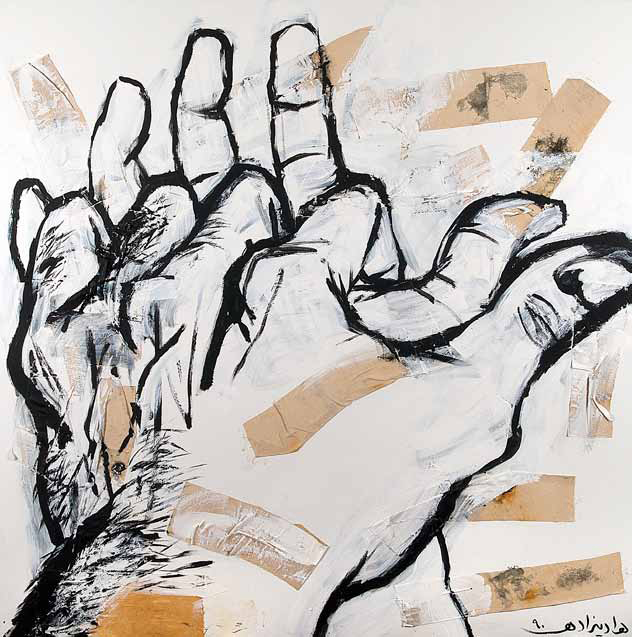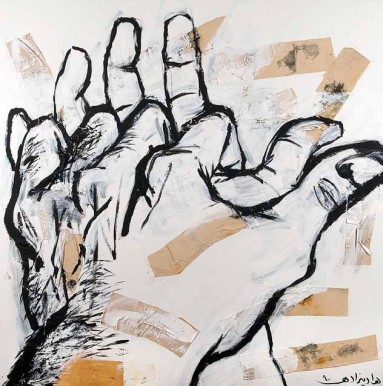Five Questions with __________ is an experiment with flash interviews. The series on poets continues with Michael Davidson, poet, critic, literature professor, and editor of George Oppen's collected works. I read a blurb written by Davidson on the back cover of a poetry volume recently, and it distracted me (in the best sense) from the book itself. He has argued, in lengthy essays and in the book Concerto for the Left Hand: Disability and the Defamiliar Body (University of Michigan Press, 2008), for a poetics and politics of disability that 'defamiliarizes not only language but the body normalized within language.' Such a move would go beyond an interest in depictions or themes of disability (Davidson is himself hearing impaired) and 'dependence on ableist models.' It might ask, as Davidson does, 'What would it mean to think of Charles Olson’s “breath” line as coming from someone with chronic emphysema exacerbated by heavy smoking? What if we added to Audre Lorde’s multicultural description of herself as a Black, lesbian, mother, “sister outsider,” a person with breast cancer (as she herself does in The Cancer Journals)?' Davidson keeps in mind the failure of 1960s anti-oppression movements to consider disabled persons as more than people 'best kept out of sight, their wheelchairs, braces, and oxygen tents sequestered in hospitals, clinics and asylums.' Yet his attention to physical and material limitations as constitutive of the process of making art is as universal an entreaty as any we are likely to hear.
Regarding Blake's pronouncement to 'think in the morning, act in the noon, read in the evening, and sleep at night,' what time of day do you have the greatest appetite for work and thought?
The morning, for sure. But Blake doesn’t mention exercise. Since I swim every morning, I get my best work done before a swim and then process it during the laps.
Are horizons to self-discovery being narrowed in the stockpile of self-presentation and the branded self—or has branding been there all along?
Using the examples of St. Augustine or Benjamin Franklin, I’d say branding has been around for a long time. The difference is that the brand has taken on all of the features of the self so that what used to be something toward which one aspired can now be purchased online in a variety of colors. But this implies a difference between a Self, grounded in presence and one grounded in Capitalism. It’s probably worth separating the two so as not to de-historicize the two terms and to acknowledge the force that the market has had on ideas of agency and identity. Franklin really is the turning point in a way, someone who could invent himself retrospectively for the purposes of future consumption. But it’s a long way between Franklin and Lady Gaga.
Where were you and what were you doing 1968-69?
I was in graduate school in Buffalo, like most members of my generation, fighting the revolution.
Do you read books front cover to end or do you skip around, wander and 'err'?
Depends on what kind of book. Novels I read from beginning to end, sometimes skipping the more predictable parts, but generally moving forward. Theory, criticism, books of poetry, I tend to treat as open to whim and distraction.
What has surprised you most about your body's resilience or submission to time, life events, or non-evental being?
I wish I knew what “non-evental being” means since I suspect this is where I could talk about states of consciousness or transcendence. If that’s what this implies then I might say that I spend a lot more time in the non-event realm wishing for more events. When I was younger I took the body for granted; it was just “there” and would always supply the same predictable access to the world. Because it was eternal, it could be abused more generously. As I’ve gotten older, my body seems to be approaching the condition of one of Beckett’s characters (Molloy or Malone) where gradual decrepitude is accompanied by a search for more accommodating prostheses. One doesn’t despair; one simply adapts.

